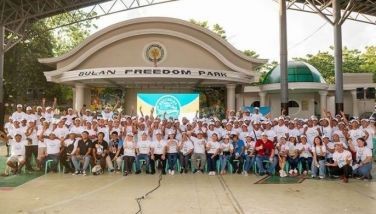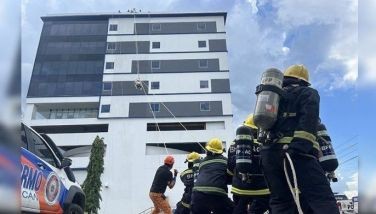Urquico is not Manero - My Viewpoint
The case of the grant of absolute pardon to convicted kidnapper Benigno Urquico is vastly different from the conditional pardon given to Fr. Tullio Favali's killer, Norberto Manero, Jr. Urquico's case is also clearly distinct from the cases of Nelson Exconde and Ronelo Añonuevo, the killers of the father of Quezon Representative Marcial Punzalan Jr., both of whom were among convicts granted conditional pardons by the President last December 16th.
That now controversial list released by Malacañang covered six convicts who were granted absolute pardon, 308 granted conditional pardons, and 233 given commutations of sentences. The list is still being closely scrutinized by critics to uncover specific cases of allegedly undeserving recipients of Presidential bounty. There are accusations of sloppy staff work done by either the Board of Pardon and Parole or the Office of the Executive Secretary. There are claims that certain politicians recommended and then actively pressed for the grant of clemency for particular convicts.
There is no question that the way the BPP works should be looked into. Most of the members of the Board are retired civil servants who serve thereon without pay. Their dedication and willingness to serve merit praise, but I do not think this is the best way to organize an important body with so much power and responsibility. The board decides particular applications on the basis of a carpeta, or case file, prepared by prison authorities. The board itself has no resources to check the veracity and competence of the contents of that file and the recommendations made therein. The processes utilized by the board in making its own decisions and final recommendations are primitive. For instance, there is no requirement for psychological examinations, one obvious method of checking whether a man convicted of a crime and locked up for years is fit to be reintroduced to civil society. Moreover, the board, in determining whether the convict has behaved properly while incarcerated, relies principally on what prison authorities say. They have no independent means by which to verify this crucial piece of information.
Still, the valid questions raised in regard to the Board of Pardon and Parole do not justify muddling the issues in regard to particular applications for clemency. The case of Benigno Urquico is one such example of linking up unrelated and distinct cases.
Yes, Urquico was in the December 16th list, number six in the list of six convicts granted absolute pardon. His name was allegedly inserted belatedly. The representation in supporting papers that his absolute pardon was recommended by the board was belied by its members. These discrepancies can, of course, be looked into because they are, once again, an indication of sloppy, negligent, or perhaps even fraudulent, staff work. Legally, as new Justice Secretary Artemio Tuquero has clarified, the absolute pardon granted by President Estrada must stand. His Constitutional power is plenary and, as Secretary Tuquero states, the Chief Executive answers only to his conscience and to his God. A favorable recommendation by the board is not a requisite for the Presidential grant of clemency.
Moreover, it turns out that Urquico was released from prison way back in 1977, after full service of his sentence which, in turn, had been commuted by President Ferdinand Marcos from life imprisonment to an indeterminate period of 17 to 20 years in jail. The purpose of the application for absolute pardon was to restore him to his full civil and political rights. Now it seems to me that over 22 years after his release from prison, we can decide whether a convicted kidnapper who served his sentence deserves to be reinstated as a full-fledged citizen. But as far as we know, Urquico has not broken any law or otherwise given any reason to doubt that he has lived life as anything but a law-abiding citizen. Of course, if this turns out not to be true, then questions must be raised about the wisdom of the absolute pardon.
But raking up Urquico's past, in particular his past involvement with Caloocan City's Big Four, a notorious crime syndicate in the early 60's, may constitute interesting historical information, but it is not particularly relevant unless Mr. Urquico is shown to have reverted to his former lawless ways. At the same time, the fact that his Big Four colleague and Muntinlupa co-inmate, Rep. Luis "Baby" Asistio, helped obtain the Presidential pardon is neither shocking nor offensive to the senses. Asistio himself was granted a presidential pardon almost 15 years ago and is now an elected congressman for Caloocan City. At the end of the day, the decision to grant or not grant clemency is addressed to the sole discretion of the President of the Philippines.
- Latest
- Trending

























